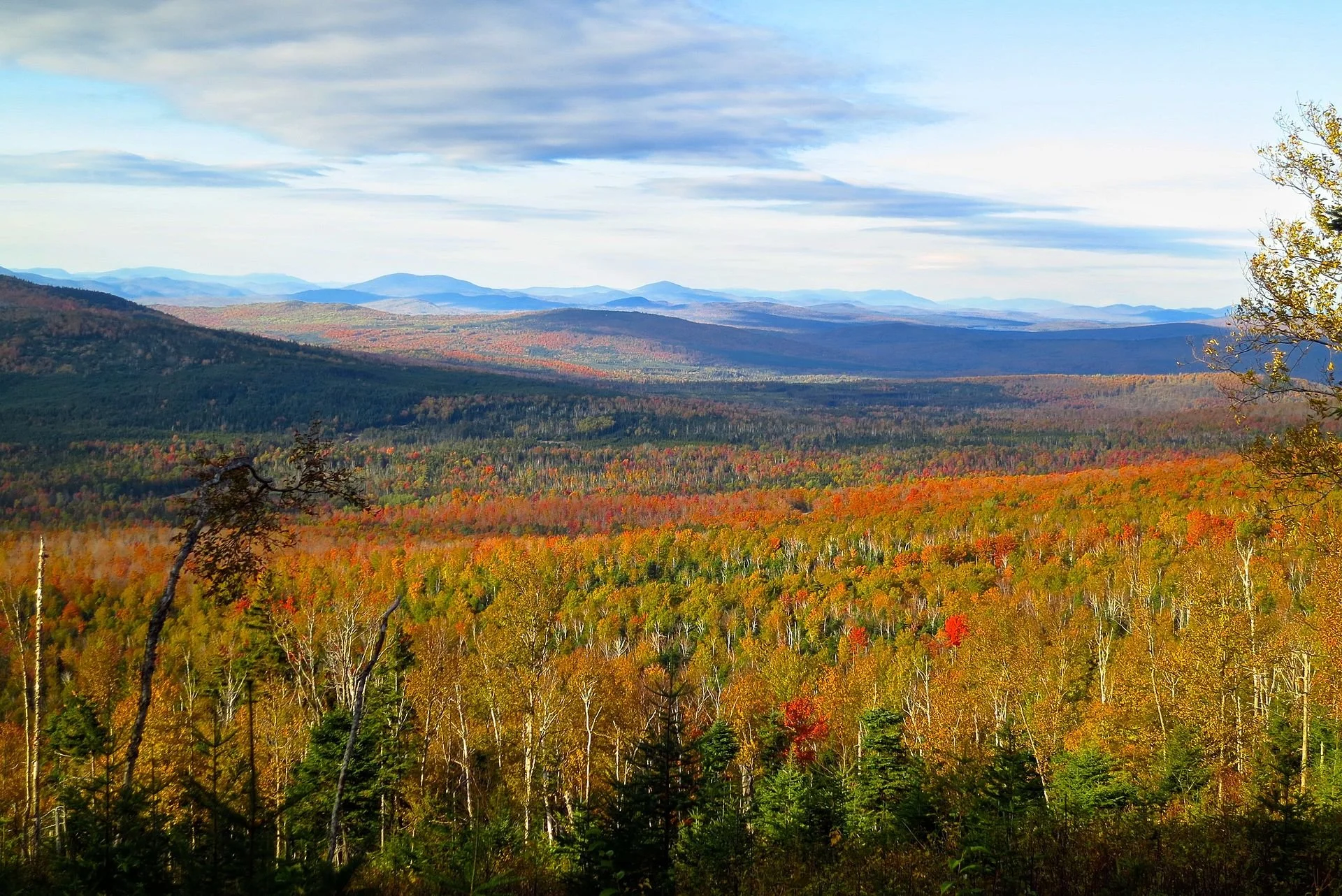
Trying to grow bigger trees
In the Great North Woods of northern New Hampshire. The area is famed as a source of lumber and wood pulp for paper-making.
— Photo by Will Leavitt
Adapted from an item in Robert Whitcomb’s “Digital Diary,’’ in GoLocal24.com
The U.S. Department of Agriculture is funding a $30 million pilot program to encourage New England forest owners to help address global warming by growing bigger trees, which store more carbon and provide better wood for the building, furniture and other industries than smaller ones. The program, of course, will have the biggest impact on Maine.
The New England Climate Smart Forest Partnership Project is one of 70 department projects aimed at absorbing carbon from greenhouse-gas emissions.
This project includes “pre-commercial thinning” of trees to let the surviving trees grow larger and faster. Sounds reasonable, but this won’t please wildlife that thrives in areas that are thick with smaller trees and bushes. Indeed, the clearing of strips of forest for electricity lines and fire breaks creates ecosystems for many animals.
Poets ignore Maine's blood-sucking reality
Black fly. The blood-loving insect drives fishermen and other visitors crazy in inland northern Maine from late May to July. New England Diary's editor experienced the horror during a fishing trip to Moosehead Lake.
"It seems odd that in all the years during which poets have sung of the lure of the Great North Woods {of Maine} not one of them has made even passing mention of midges and black flies...{It} gives rise to the suspicion that the poets of the great outdoors...have never been north of Portsmouth, N.H.''
-- Kenneth Roberts, in Authors Only (1935)

